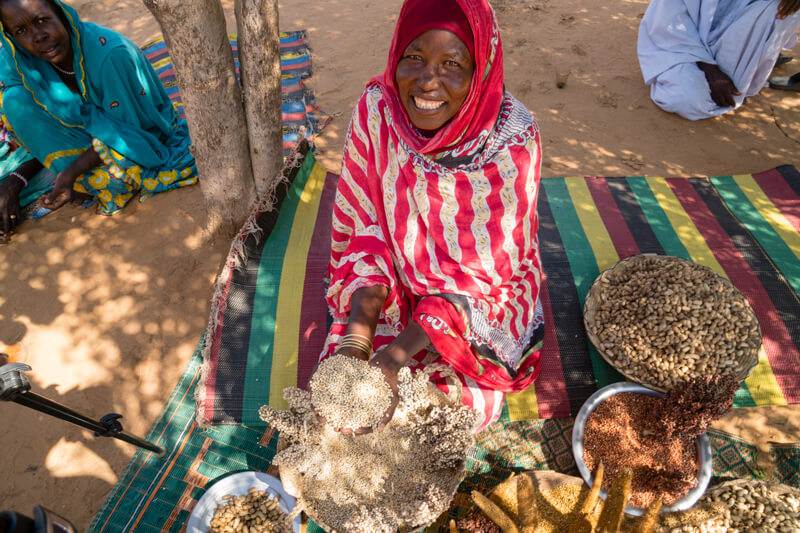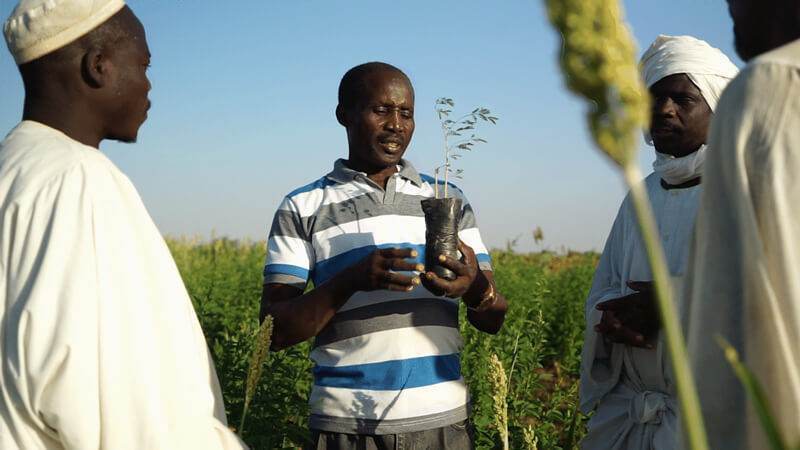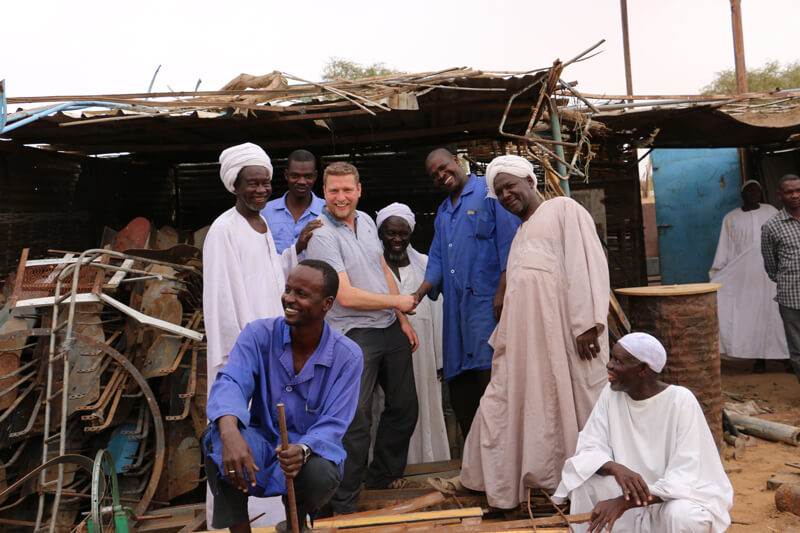Take Al Hafiz, a 40 year old dad, known locally by his nickname ‘The Wholesaler’. This guy was Majdoub’s version of Del Trotter, a wheeler-dealer diamond geezer who was happy to work all hours in order to make enough money for his family to thrive.
On the day I arrived he had taken delivery of a new grinding mill, allowing him to process his crops and sell them in the markets at a greater profit than his unprocessed crops would get. As is the way in rural Sudan the whole community had come together to build a shelter for his investment. In return, he was preparing a huge meal for everyone who had mucked in. And he was, of course, planning to share the mill with them all.
His house was an incredibly noisy and happy place – full of laughter, kids and chaos. But it hadn’t always been like this. In a rare moment of solemnity Al Hafiz and his wife told me what life had been like for them before Practical Action came along.
When he started a family in Majdoub around 10 years ago, things were tough. Climate change was already starting to bite and farming wasn’t working in the way he wanted. He and his mates spoke of little else other than how to get out and make a living elsewhere. As a man unafraid of taking on life’s toughest choices, Al Hafiz left his family and moved to Khartoum to earn money to send back.
It wasn’t the best decision he’s ever made – but reflects the reality for hundreds of thousands of men like him. Life was, to say the least, tough, both for him and Makarem, his wife. As an unlicensed street salesman he was constantly on the run from the authorities and he even had a specially designed bag so he could pack up and run at the first sign of a copper. He mostly slept rough and often had nothing to send back home.
“It was hard.” said Makarem, mum to their six children and one of the most welcoming people I have ever met. “He would often be in a very bad mood and aggressive when I spoke to him.
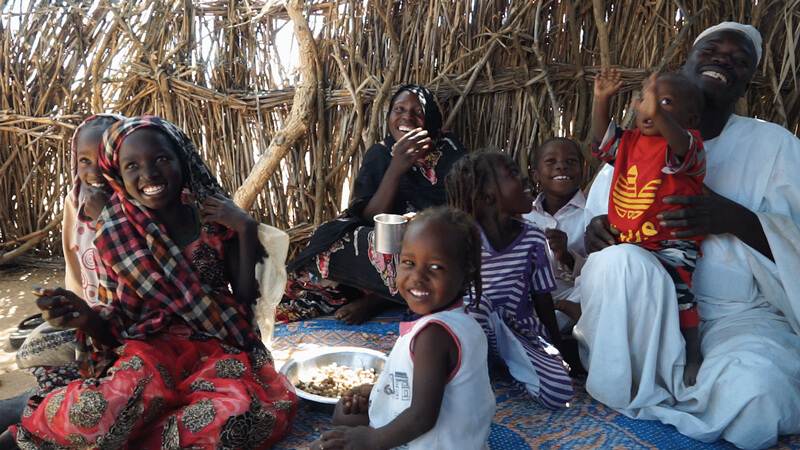
“We had nothing here. There were times when I had to go very hungry and I would be forced to pick grasses for the children to eat.”
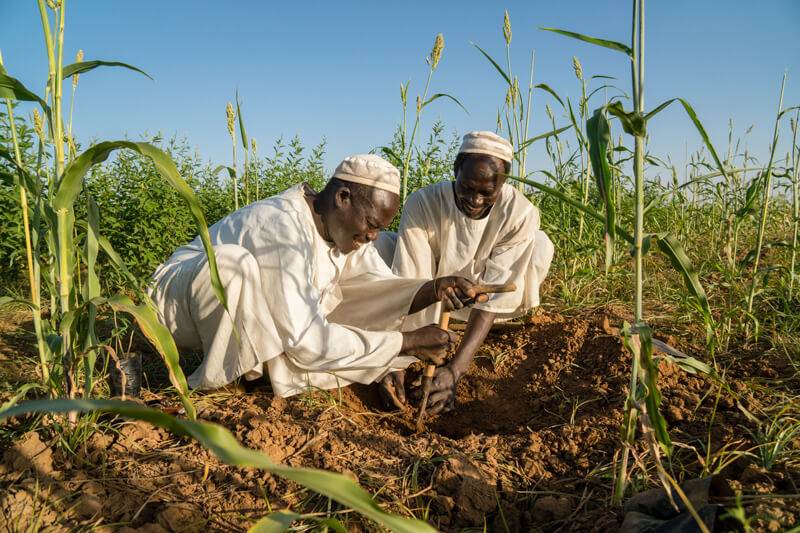
So when Al Hafiz heard Practical Action was going to work with people in Majzoub he came back in a flash. Once back, he started working his land, using water collected in the dam to irrigate and learnt new skills and knowledge from Practical Action project manager Awadalla and his team.
Soon, he was diversifying his crops, growing cucumber, sesame, tomatoes, aubergine and hibiscus, in addition to staples such as millet and sorghum. As a proud entrepreneur, he has also diversified into a little sheep farming and food processing, as his brand new mill demonstrates.
He said: “Farming is difficult because of the recurring droughts we face. Climate change is changing the way we sow and harvest.
“So in response to climate change I not only have crops but I also keep livestock so that I can earn money in as many different ways as possible. I also learn other trades so that if we lose everything I can still make money for my family.
“The most important advice I would give is for people to understand crop diversification and ecological knowledge. Perhaps the next would be water harvesting techniques. Without water, nothing is possible.
“In 50 years’ time I think that with the ways we are learning to farm now, farming will still be possible here for other generations.”
“Although the climate is changing there are so many ways of dealing with it and information around others’ experience and what is possible. So I am optimistic for the future.
“Here I am stable and I am with my family. The future for me is here and we [the farmers] are all talking to each other. There is a massive difference between the two situations I have been in.”
